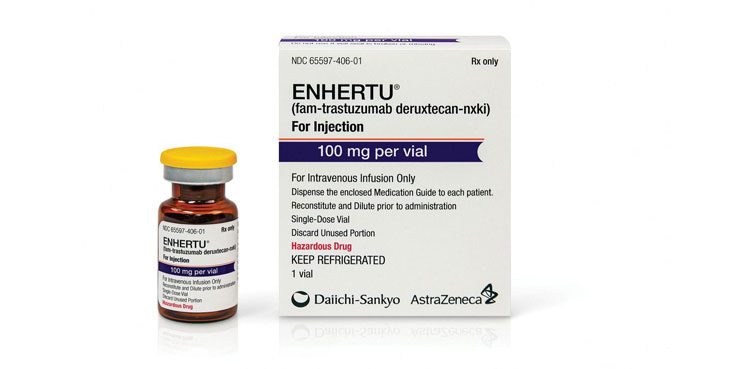AstraZeneca said a late-stage trial confirmed the benefit of breast cancer drug Enhertu in patients with an innovative form of the disease who formerly treated with another therapy.
In a 600-patient trial called DESTINY-Breast02, Enhertu -developed with Japan’s Daiichi Sankyo- likened in contradiction of a treatment pre-determined by physicians in people with HER2-positive metastatic breast cancer.
The trial assessed a comparable breast cancer patient population as the DESTINY-Breast01 mid-stage trial, which was the basis for early approvals in Europe and numerous other countries, AstraZeneca said.
In the DESTINY-Breast02 study, Enhertu met the chief goal of statistically significant and clinically meaningful upgrading in progression-free survival, a measure of how long a person can live without their disease getting worse. The drug also improved inclusive survival, a key secondary goal.
Detailed results will have obtainable at a forthcoming scientific conference.
The HER2 protein contributes to the growth and spread of breast cancer. About one in five patients with breast cancer measured HER2-positive, rendering to AstraZeneca.
AstraZeneca’s shares were up about 2% on Monday morning, although Daiichi’s shares jumped about 15%.
Drug Enhertu:
Formerly this month, AstraZeneca and Daiichi secured U.S. approval precisely targeting patients with so-called HER2-low breast cancer, paving the way for billions in sales.
Enhertu’s first support came in late 2019, as a third-line treatment for breast cancer patients with HER2-positive disease, in the United States.
It has since also secured numerous approvals in other breast cancer settings, as well as forms of lung and gastric cancer.
Read Also: Habit to Prevent Diabetes & Heart Disease
The drug, which produced sales of $214 million in 2021, goes to a class of therapies called antibody drug conjugates. It includes a monoclonal antibody chemically linked to a cell-killing chemotherapy drug.
AstraZeneca protected partial rights to the Daiichi Sankyo compound three years ago in a deal worth up to $6.9 billion.


